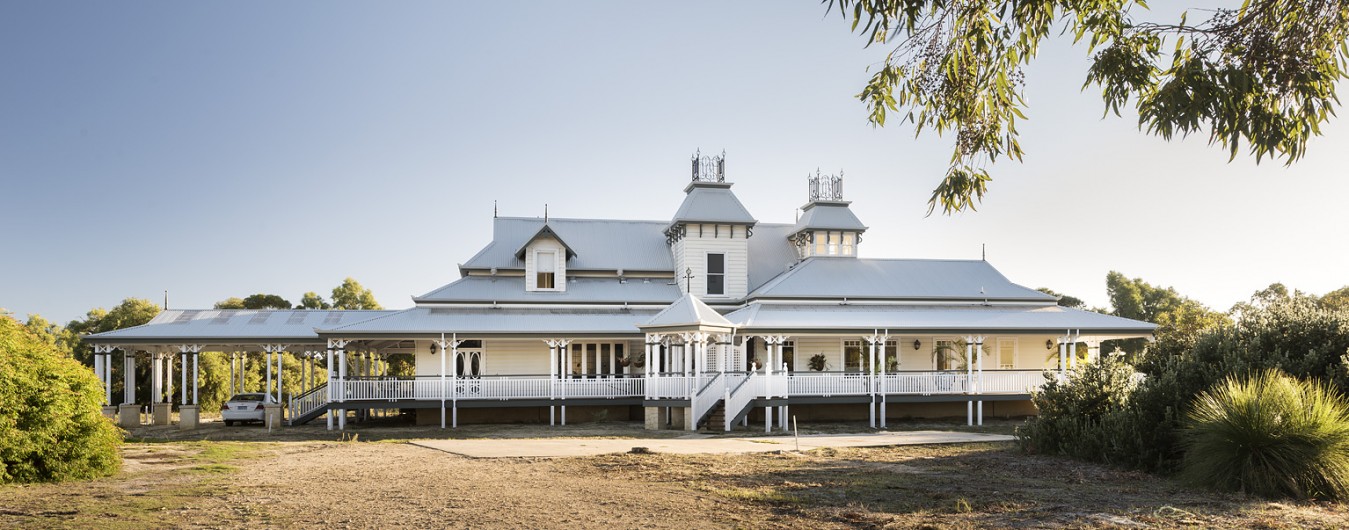6 August 2010
Ray Wills, CEO
Western Australian Sustainable Energy Association Inc. (WA SEA)
Website: www.wasea.com.au
Email: info@wasea.com.au
The WA Sustainable Energy Association Inc. (WA SEA) has created a comprehensive list of cost effective and practical actions that can be taken across all sectors of the economy that will boost national productivity, reduce inflation and ensure continued strong growth within the Australian sustainable energy industry and across Australia’s economy for decades to come.
This document consolidates a raft of commentary released by WA SEA aimed at improving Australia’s energy efficiency and take up of renewable energy generation, including measures that remove barriers to business entry and deliver incentives to ensure a more sustainable economy.
‘Most importantly, a new Federal Government must also walk the talk – measures being encouraged for business and the community must be rolled out and demonstrated as a greater priority in government operations. All government departments and agencies must be instructed to increase energy efficiency and install renewable energy on all existing government facilities and other public buildings. Further, the Government must ensure new buildings built on the public purse are energy efficient buildings and powered by renewable energy.’
‘In particular, all Government operations must aim to source 100% renewable energy for their power requirements by 2015.’
A United Nations Environment Programme report released on 15 July 2010 quantified that renewable generation is now 25% of world electricity generation. What is more, almost 50% of new generation built around the globe last year (2009) was renewable energy. Globally, about 80 gigawatts of renewable power capacity was built in 2009, compared to 83 gigawatts of fossil fuel plants. Renewable energy accounted for 60 percent of new capacity in Europe, and more than half of new power generation in the U.S.
What about Australia? Australia averages around 8% renewable energy generation, and Western Australia about 5%. In the same year that saw almost 50% of projects in the rest of the world go renewable, renewable electricity generation projects accounted for less than 25% of planned additional capacity in Australia, according to ABARE data.
‘We must fundamentally change the way we think about energy and how we do business. And we must act,’ says WA SEA Chief Executive Prof Wills.
While some politicians try to downplay the importance of climate change and sustainability as an election issue, a poll jointly commissioned by the ACF and WWF conducted by respected Auspoll shows climate policies will affect the votes of most Australians.
The poll revealed that ‘Pollution and climate change’ will influence the votes of 78 per cent of the 2,200 voters surveyed.
Next week WA SEA will release an election score chart that will document how well election commitments from all major parties are tracking against this action list.
WA SEA policy initiatives to transform Australia’s economy and support businesses that are a part of the solution to climate change:
The challenge of climate change must be the catalyst for changing the way we think about and plan infrastructure, and the way we use energy and in so doing, future proof our economy. A key element of delivering this change is an integrated, whole-of-government approach inclusive of both business and the community to tackle the threat global warming poses to Australia and the world. Opportunities exist to use sustainable energy projects as a way of restructuring Australia’s economy, refurbishing towns and cities, and contributing to the renewal of rural Australia, creating sustainable communities.
WA SEA advocates the following cost effective and practical mechanisms to deliver lower greenhouse gas emissions and strong growth within the sustainable energy industry, including measures that remove barriers to business entry and deliver incentives to ensure a more sustainable economy. Governments must create budgets that deliver renewable energy and promotes energy efficiency across government, business and the community in homes, buildings, appliances and vehicles.
A renewable energy industry
Government improve the sustainability of the Australian economy through legislative reforms and market support for the development of a diversity of renewable energy projects distributed across all regions of Australia, meeting community aspirations to develop local industry and local jobs across all sectors of enterprise. Government must encourage the exploration of Australia’s renewable energy resources and advance the use of renewable energy across the nation, ensuring all communities have the opportunity to generate local energy and local revenue. To this end, specific incentives must be developed to deliver renewable energy projects outside of the National Energy Market and to islanded grids and isolated domestic and commercial energy users.
Skills development and jobs in sustainable energy
Recognise the importance of training and education to deliver the skills and knowledge to grow Australian jobs delivering sustainable outcomes for all sectors of the economy. Renewable energy energy sources are far greater than our fossil fuel resources, renewable energy is generally more labour intensive, and by the nature of the source, more broadly distributed across regions. With a better employment factor, renewable energy projects can lead to growth of local communities in rural Australia, and bolster a broad range of skills in agricultural regions. Biomass sources in particular will draw on and build skills already available in regional Australia.
Mandated Renewable Energy Target (MRET) a trajectory, not an endpoint
Planning for energy past the target of 20% from renewable energy by 2020 must actively consider the continuing strong growth of renewable energy that will occur as a result of ten years of development and commercialisation, potentially delivering energy from renewable sources in a decade at prices cheaper than fossil fuels will at that time. Conventional projections curiously assume an end to growth of renewable energy after 2020 in the absence of subsidies. While some emerging technologies will need support at that time, renewable technologies being deployed today will be price competitive by the end of the decade, and their growth will dominate energy markets in Australia and globally.
A national emissions trading scheme
WA SEA contends a national emissions trading scheme (ETS) using a cap and trade system that is broadly based is the best market tool to deliver a price on carbon and to allow industry to best respond, and deliver certainty by a firm start date to commence at the beginning of the next financial year. The ETS must operate in parallel with existing industry development initiatives from Government programs such as MRET, be implemented with standardised legislation across Australia to provide consistency for business operating across state borders, and be compatible with other international schemes. WA SEA supports action by governments to reasonably consider the challenges of export-exposed industries, but not through the issuing of free permits; instead, governments should work with industries that will be adversely impacted to deliver the equivalent value of renewable energy to assist in the reduction of emissions overheads in emissions-intensive operations.
A strong emissions reduction target
Australia is one of the most greenhouse intensive economies in the world. Achievable targets and an effective implementation strategy are required to ensure that emission reductions are achieved and maintained while at the same time bolstering diversity of the national economy. WA SEA supports setting a scientifically based emissions reduction target for the nation of 80% by 2050, and this target must guide substantial shorter-term action.
Government purchase renewable electricity and biofuels
Government as a collective operation is Australia’s single largest user of electricity and must provide leadership through the commitment to purchase 100% renewable energy by 2015. Government procurement of renewable energy may result in modest increases in energy costs to government in the short term, but will creating significant demand that will stimulate the market and yield new renewable energy projects. This target must extend to liquid fuels that may be required, including biofuels for the government vehicle fleet, and the take-up of high efficiency diesel, hybrid electric vehicles, and active adoption of electric vehicles as these become commercially available.
Government to be Carbon Neutral by 2015
As a part of its commitment to renewable energy, the Federal Government has taken some measures to reduce the carbon emissions resulting from government operations, but stronger measures on energy efficiency and installation of renewable energy on government buildings must be implemented across all government operations. Any remaining emissions from Government operations must be offset by appropriate action.
Investment in transmission and use of distributed generation and district generation
Government investment in the electrical transmission system using a public interest test of the community to facilitate investment in large scale renewable energy projects and enable a renewable base load portfolio through geographic and resource diversity.
Feed-in tariffs for renewable energy for domestic, small-scale and large-scale generation.
The Federal Government must work with COAG to develop a nationally consistent feed-in tariff (FiT) for renewable energy. The introduction of a FiT in overseas countries has led to significant growth of the renewable energy industry, particularly solar. A gross metered FiT available to all forms of renewable energy with tariffs set at different levels to reflect the value of embedded generation in domestic, commercial and industrial scale generation, and attracts the most efficient renewable energy technologies as these deliver the most cost-effective investments under a FiT.
Initiatives maximise use of low emissions and no emissions transport.
Government must implement transport policies that integrate, and are inclusive of, the needs of pedestrians and cycling, domestic and commercial and industrial vehicle fleets, and all forms of public and industrial transport networks inclusive of bus, rail, air and sea. In particular for vehicles, policy should drive the take-up of high efficiency diesel, hybrid electric vehicles, and active adoption of electric vehicles. Initiatives that encourage the uptake of low and no emissions transport will benefit the bottom line for the community, for business and for the economy,
Public transport including light rail
Public transport utilising low and no emissions mass transit, and particularly light rail, is seeing significant growth in nations around the world, and Australia should ensure it delivers strong investment in infrastructure for the benefit of future generations of Australians.
Removing polluting vehicles
Programs to actively remove polluting vehicles from Australian roads has the potential to reduce: air pollution (higher standard engines in vehicles); carbon emissions (fuel efficient in vehicles); out of pocket expenditure (fuel efficient vehicles); motor vehicle accident occurrences (safer vehicles); motor vehicle accident injuries (safer vehicles); hospital queues (safer vehicles). Programs should use a mixture of incentives and stricter enforcement rigorous to remove unroadworthy vehicles and prevent relicensing of unsuitable expired-licence vehicles.
Mandatory installation of no emissions heating and cooling in new and renovated buildings
There are a range of solutions to deliver cooling, heating, and production of hot water without emissions using renewable energy options. Mandatory installation of the most affordable and appropriate technologies such as solar hot water, solar air-conditioning, heat pumps and geothermal on all new houses and buildings, and tied to all renovation approvals, as well as on all existing government facilities and public buildings, will deliver long term savings to building owners and tenants. Geothermal is particularly suited for the cooling and heating of commercial and high-density residential buildings.
Energy efficiency incentives
Expansion of existing and addition of new programs is required to:
• identify energy efficiency priorities among small residential, commercial and industrial users;
• enhance behavioural change for energy efficiency (similar to current water campaigns);
• create market transformation by support for procurement of energy efficiency products and services;
• establish a rolling fund to support energy efficiency initiatives with commercial and industrial users; and
• use energy efficiency programs in all sectors and ensure that no end user is worse off as a result of rising energy costs associated with establishing a carbon price.
Energy efficiency and greenhouse gas labelling for all appliances, buildings and vehicles
WA SEA supports the immediate introduction of a mandatory energy efficiency reporting in advertising of the energy use and efficiency of appliances, buildings and vehicles.
Mandatory energy efficiency for larger firms
WA SEA supports the immediate introduction of an energy efficiency scheme that both regulates and incentivises uptake of otherwise cost-neutral savings for medium to large businesses, and for all government operations, consistent with other energy efficiency schemes implemented in Australia.
Sustainability principles applied to new property developments and construction projects
WA SEA supports the immediate introduction of a mandatory energy efficiency and renewable energy deployment in new property developments with reduced taxes and fees. Sustainable construction principles be applied to the construction industry to encourage buildings that use less virgin material, more recycled product, and that are designed to use less energy, cause less pollution and less waste.
Minimum energy performance and mandatory disclosure for buildings – and precincts.
WA SEA supports further development of minimum energy performance requirements for all buildings in Australia. In addition, WA SEA supports the continued development and implementation of rating and monitoring the energy performance of not only buildings, but of precincts and regions. Disclosure should also apply to sales and rental advertising detailing energy efficiency on both new and existing homes to allow the potential building owner or tenant to compare the running costs in different buildings. All new government housing and new public buildings to meet high standards of energy performance and as well as for occupied buildings at lease renewal.
Minimise transaction costs for sustainable energy outcomes
Transaction costs including government taxes and charges should be minimised to encourage investment in renewable energy and energy efficient buildings, assets and transport for business and the community broadly.
Government support for ethical business conduct
Taxpayer funded government incentive schemes must have a pre-requisite that eligible goods and services can only be supplied by prequalified businesses that comply with an industry code of conduct, and have clear customer codes including transparent mechanisms for dispute resolution processes.
Editors notes:
1. Policy framework via WA SEA website
2. What the world is doing – United Nations Environment Programme report
3. ACF/WWF poll result
4. The Western Australian Sustainable Energy Association Inc. (WA SEA) is a chamber of enterprises that has a growing membership of over 350 industry members from a diversity of businesses. WA SEA is the largest energy industry body in Australia.
5. WA SEA bringing you the Energising SE Asia Conference 23-26 March 2011, Perth.
< Back to Blogs









